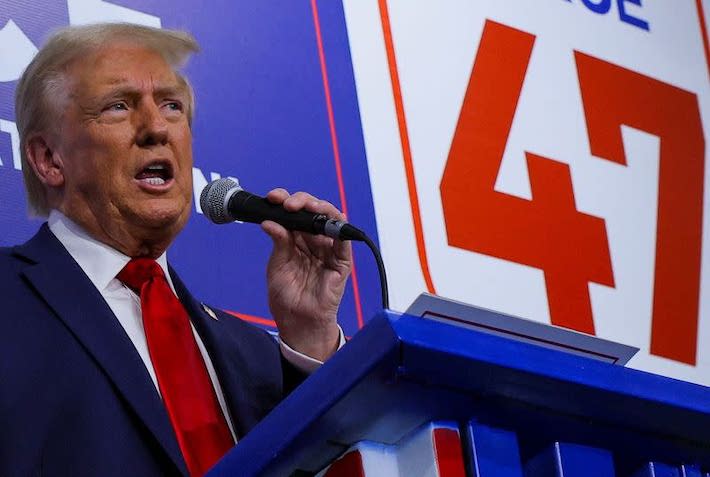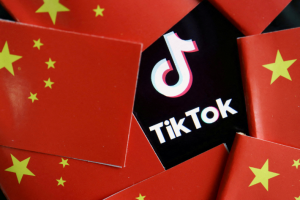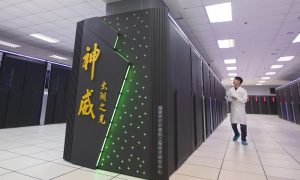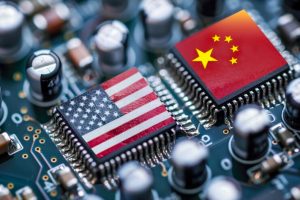The prospect of a second term in office for Donald Trump is likely to greatly affect US policies in a whole swathe of areas – trade, climate change, electric vehicles, tax and immigration in the US, plus the war in Ukraine.
Some of his proposals would need approval from Congress, but with the Republican Party well placed to win control of both the Lower House and the Senate, Trump looks likely to have the capacity to do greatly what he pleases during his second four years in office. Key areas of concern are:
ALSO SEE: China Facing More Trade Rivalry as Trump Claims Poll Win
Trade – more tariffs
Trump has floated the idea of imposing a 10% tariff or more tariff on all goods imported into the US, which he says would eliminate the country’s trade deficit. Critics, however, say it would lead to higher prices for American consumers and global economic instability.

He has also said he should have the authority to set higher tariffs on countries that have put tariffs on US imports. He has threatened to impose a 200% tariff on some imported cars, saying he is determined in particular to keep cars from Mexico from coming into the country.
But he has also suggested that allies such as the European Union could see higher duties on their goods.
Trump has targeted China in particular, saying he would impose large tariffs if it invades Taiwan. He proposes phasing out Chinese imports of goods such as electronics, steel and pharmaceuticals over four years.
The Tax Foundation, a non-partisan think tank, calculated Trump tariffs would hike taxes by $524 billion annually, shrink GDP by at least 0.8%, and cut employment by 684,000 full-time equivalent jobs potentially impacting retail workers, the largest private sector employer.
Trump’s tariff proposals could reduce American consumers’ spending power between $46 billion and $78 billion each year, according to a National Retail Federation study.
Clothing, toys, furniture, household appliances and footwear would be the most affected categories, the study said. Retailers would likely shift operations out of China to countries such as Bangladesh, India and Vietnam.
Trump has said “tariff” is his favourite word and views them as revenue generators that would help fill government coffers. But given the flow-on effects, the exact amounts are likely to be a topic of some debate.
He also wants to prohibit Chinese companies from owning US real estate and infrastructure in the energy and tech sectors.

Climate change fight could be hit hard
Trump has said he will again pull the United States out of the Paris Climate Accords, a framework for reducing global greenhouse gas emissions, and would support increased nuclear energy production.
He has also vowed to increase US production of fossil fuels by easing the permitting process for drilling on federal land and would encourage new natural gas pipelines. He has said he would reauthorize oil drilling in the Arctic National Wildlife Refuge in Alaska.
Whether the oil industry follows through and raises production at a time when oil and gas prices are relatively low remains to be seen.
He could also roll back Democratic President Joe Biden’s electric-vehicle mandates and other policies aimed at reducing auto emissions.
The biggest worry concerns Biden’s $7,500 EV tax credit policy, which had prompted Korean and Japanese carmakers to plan billions of dollars worth of investments in the US. The tax incentive can only be claimed by companies whose vehicles meet strict guidelines on car assembly in the US, while cutting off much of their supply chain ties to China.
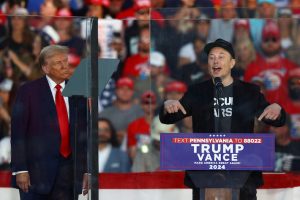
A key figure in that sector is likely to be Tesla CEO Elon Musk, who Trump has said could lead a new government efficiency commission. Some analysts have said they expect Musk to temper Trump’s actions in regard to EVs.
Also, Republican lawmakers, oil companies and others have seen massive red state gains from Biden’s climate law, the Inflation Reduction Act. Musk played into that, building his second US EV-plant in Texas.
Trump has also said the US needs to be able to boost energy production to be competitive in developing artificial intelligence (AI) systems and the use of AI data centres, which consume large amounts of power and water.
Tax cuts
Along with his trade and energy agendas, Trump has promised to slash federal regulations that he says limit job creation. He has pledged to keep in place a broad 2017 tax cut that he signed while in office, and his economic team has discussed a further round of individual and corporate tax cuts beyond those enacted in his first term.
Trump has pledged to reduce the corporate tax rate from 21% to 15% for companies that make their products in the US.
He has said he would seek legislation to end the taxation of tips and overtime wages to aid waiters and other service workers. He has pledged not to tax or cut Social Security benefits.
Trump also has said he would pressure the Federal Reserve to lower interest rates – but stop short of demanding it.
Most, if not all, of his tax proposals would require congressional action. Budget analysts have warned that the bevy of tax cuts would balloon the federal debt.

Ending foreign wars
Trump has been critical of US support for Ukraine in its war with Russia, and has said he could end the war in 24 hours if elected – although he has not said how he would achieve that. He has suggested Ukraine may have to yield some of its territory if a peace deal is to be struck, an idea Ukraine has rejected to date.
Trump has also said that under his presidency the US would fundamentally rethink “NATO’s purpose and NATO’s mission.”
He has backed Israel in its fight against Hamas in Gaza but has urged it to wrap up its offensive. Trump can be expected to continue the Biden administration’s policy of arming Israel. But he is likely to push for historic normalization of relations between Israel and Saudi Arabia, an effort he made during his 2017-2021 presidency and which Biden has also pursued.
Trump has said he will “stop the suffering and destruction in Lebanon,” but explained how.
He has suggested building an “iron dome” – a massive missile-defense shield similar to Israel’s – over the entire US continent.
Trump has also floated sending armed forces into Mexico to battle drug cartels and using the US Navy to form a blockade of that country to stop the smuggling of fentanyl and its precursors.
Mass deportations
Trump has vowed to reinstate his first-term policies targeting illegal border crossings and to forge ahead with sweeping new restrictions.
He has pledged to limit access to asylum at the US-Mexico border and to embark on the biggest deportation effort in American history, which would likely trigger legal challenges and opposition from Democrats in Congress.
He has said he will employ the National Guard, and, if necessary, federal troops, to achieve his objective, and he has not ruled out setting up internment camps to process people for deportation.
Trump has said he would seek to end automatic citizenship for children born to immigrants, a move that would run against the long-running interpretation of the US Constitution’s 14th Amendment. He has also suggested he would revoke protected legal status for some populations such as Haitians or Venezuelans.
Trump says he will reinstitute the so-called “travel ban” that restricts entry into the United States of people from a list of largely Muslim-dominant countries, which sparked multiple legal battles during his first term.
Investigating enemies, aiding allies
Trump has pledged at times to use federal law enforcement agencies to investigate his political foes, including election officials, lawyers and party donors.
Along that line, Trump has said he will consider appointing a special prosecutor to probe Biden, though he has not specified the grounds for such an investigation.
And he has said he would consider firing a US attorney who did not follow his directives – which would constitute a break with the longstanding US policy of an independent federal law enforcement apparatus.
Trump has said he will consider pardoning all of those who have been convicted of crimes in connection with the January 6, 2021, attack on the US Capitol.
In addition to criminal investigations, he has suggested using the government’s regulatory powers to punish those he views as critics, such as television networks.
Purge federal bureaucrats
Trump would seek to decimate what he terms the “Deep State” – career federal employees he says are clandestinely pursuing their own agendas – through an executive order that would reclassify thousands of workers to enable them to be fired. That would likely be challenged in court.
He would set up an independent government efficiency panel headed by billionaire supporter Elon Musk to root out waste in the federal government. He has not detailed how the body would function.
The government already has watchdogs such as the Office of Management and Budget, and investigators general at federal agencies.
Trump would crack down on federal whistleblowers, who are typically shielded by law, and would institute an independent body to “monitor” US intelligence agencies.
- Reuters with additional input and editing by Jim Pollard
NOTE: Further details & a photo were added and some cuts undertaken on November 6, 2024.
ALSO SEE:
US Chipmaker Fined $500,000 for Chips Sent to China – NYT
Trump Says He’ll Hit China With Big Tariffs if it Takes Taiwan
AI Data Centres Using Much More Water Than Expected
US Says China Giving Lethal Aid to Russia in Ukraine War – FT
China EV-Maker BYD Weighing Up Three Sites for Mexico Plant
Potential Trump Win Worries Asian EV Firms – But China’s Happy
20 China Firms Among 300 Sanctioned by US Over Russian War
China Slams Moves to Ban Citizens Buying Property in US




